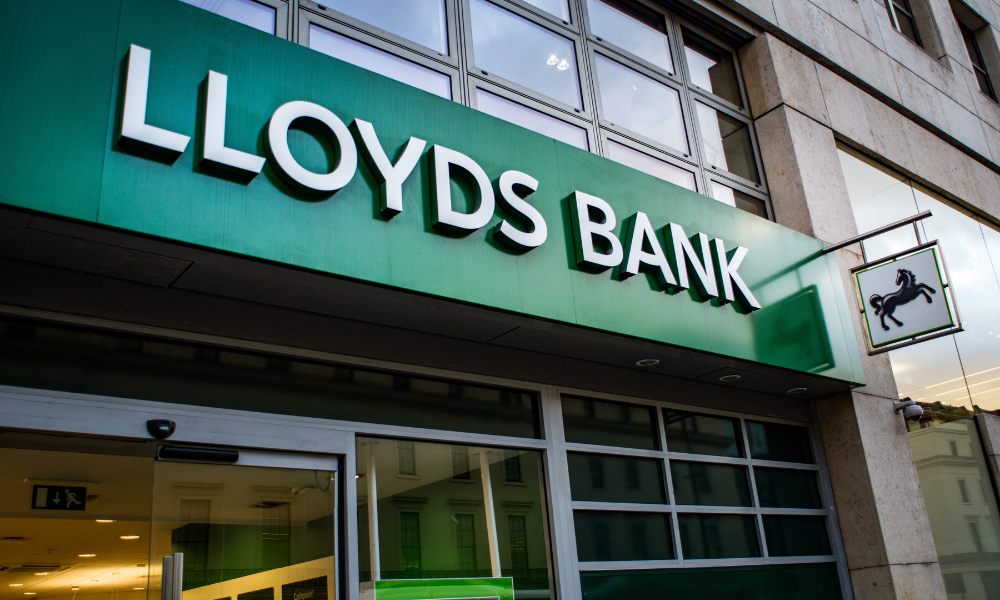Big lender more than doubles how much your client’s property may go up in value this year

Everything looked like it was going so well, until the new Chancellor used the B word (budget), and suddenly international markets got twitchy, and homeowners got freaked out by the T word (taxes). The good news, however, is that the country’s biggest mortgage lender is seeing past the next few weeks, and, if anything, is more positive about the market.
Read more: Shock figures show property asking prices cooling as stock surges
Britain’s biggest mortgage lender has announced that it has boosted its forecast for house price rises this year and posted better than expected quarterly profits as customer confidence returns.
Lloyds Banking Group, which accounts for more than a fifth of the mortgage market, said it was now predicting a 3.1% increase in house prices in 2024, a more than double upgrade from the 1.2% growth it was expecting at the end of June.
It disclosed its stronger forecast in third-quarter results that showed it generated pre-tax profits of £1.8 billion in the three months to the end of September, a dip of just 2% compared with a year earlier and much stronger than the £1.6 billion that had been expected by City analysts.
William Chalmers, the Lloyds finance chief, said the bank had “continued to see increased confidence in customer activity”. Mortgage applications had risen by 17% over the course of the year and the group had noticed “a material increase in non-essential spending over the first nine months” by customers.
The figures from the FTSE 100 company, which is the first of Britain’s big banks to report earnings for the third quarter, shed further light on the health of households and businesses in the run-up to next week’s budget.
Lloyds is considered a bellwether for the British economy, with sprawling operations that are almost entirely focused on the UK and encompass brands such as Halifax, Bank of Scotland, MBNA credit cards, life insurance and pensions from Scottish Widows, as well as Black Horse car financing.
Its predictions for the economy are closely watched and Chalmers said on Wednesday there had been a “modest improvement” in its forecasts. It now expects gross domestic product growth of 1.1% this year and 1.3% in 2025, up from 0.8% and 1.2% respectively at the half-year.
As well as lifting its forecast for the housing market this year, it also upgraded its prediction for property prices in 2025 to a rise of 2%, from its previous estimate of 1.4%.
Total lending balances at Lloyds were up £4.6 billion in the quarter to £457 billion, while deposits increased by £1 billion to £475.7 billion, which Chalmers said were “all signs of a relatively constructive economic environment”.
Its lending book growth was driven by a £3.2 billion rise in mortgages, with sentiment in the market bolstered by falling mortgage rates, he said.
Home loan costs rose after the Bank of England began to rapidly lift its base interest rate at the end of 2021 and the mini-budget debacle in September 2022 caused turmoil in Britain’s financial markets. However, this year the Bank cut its benchmark rate in August from 5.25% to 5% and further reductions are expected. Lloyds forecasts one more cut this year and three in 2025.
Expectations that borrowing costs will fall further have helped to fuel a price war recently in mortgages, which are priced on market predictions for future interest rates. This, in turn, has pushed down on banks’ margins, as has a trend among savers to move their spare cash to accounts that pay higher rates of interest.
The banking industry has enjoyed a boom from higher interest rates but this tailwind is starting to fade as borrowing costs decline, although hedging arrangements that lenders have in place to insulate themselves from rate movements are expected by analysts to continue to underpin profits.
At Lloyds, a lower than expected impairment charge of £172 million for bad loans during the third quarter, thanks partly to a £77 million one-off writeback following a debt sale, helped it to beat profit forecasts for the period.
Recent robust earnings at banks have spurred speculation that the Labour government could target the industry for a tax raid in its first budget next Wednesday. Chalmers said the banking sector, and Lloyds within it, “are one of the UK’s largest taxpayers already” and that it was important to have a “competitive” tax regime.
Nervousness about other possible tax changes had driven “a modest increase in pension withdrawal” from some customers, Chalmers said, but uncertainty about the budget had influenced customer behaviour “only in a very limited way”.
“Overall we hope the budget will actually be a confidence-boosting event,” Chalmers said. Asked about the potential impact of a rumoured increase in employer national insurance contributions, he said: “Whatever the tax changes might be, we believe that they will be pursued in the context of a constructive pro-growth agenda.”



